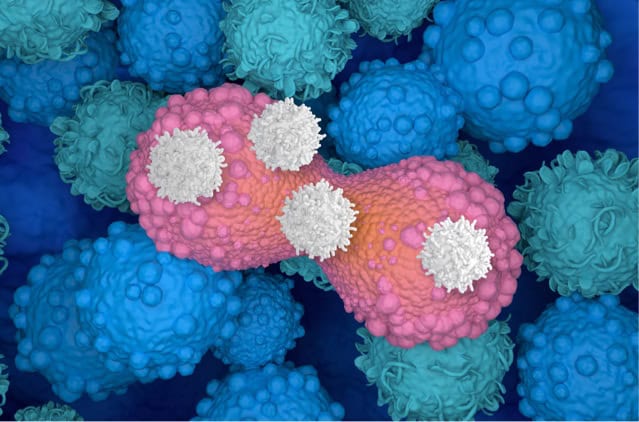A bacterium supports healing of chronic diabetic wounds
A specific bacterium, Alcaligenes faecalis (A. faecalis), can help heal hard-to-treat wounds in people with diabetes. …

A specific bacterium, Alcaligenes faecalis (A. faecalis), can help heal hard-to-treat wounds in people with diabetes. …

A new preclinical model offers a unique platform for studying the Parkinson’s disease process and suggests a relatively easy method for detecting the disease in people. …

Switching off interleukin 11 (IL-11), an inflammatory protein, can increase the healthy lifespan of mice by almost 25 percent. …

Elimination of solid tumors by immunotherapy requires a triad of different immune cells collaborating together: one dendritic cell, one cytotoxic (“killer”) T cell, and one helper T cell. …

Researchers successfully restored hearing in adult mice with inherited hearing loss by using gene editing to deactivate a mutated microRNA gene. …

New study shows that brain inflammation caused by infections and neurodegenerative diseases releases interleukin-6, which travels from the brain to the muscles and leads to a loss of muscle function. …

New research advances therapies to regenerate insulin-producing beta cells as a potential new treatment for diabetes. …

CHARM, a compact and versatile epigenetic editor offers a potential first-line treatment for deadly prion disease and other neurodegenerative conditions by silencing prion protein throughout the brain. …

New findings show that iron is a key regulator of energy usage by immune cells in the lungs and that targeting iron uptake could help treat asthma and other allergic diseases. …

Researchers have uncovered a key mechanism that restricts anticancer immune responses by cytotoxic T cells. …
End of content
End of content